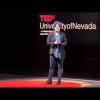In Unlocking the Emotional Brain, Bruce Ecker, Robin Ticic, and Laurel Hulley describe what they call coherence therapy, an approach that looks for why it makes sense, at some level, have the symptoms one has. In their view, approaches that try to talk us out of or mask our symptoms are unlikely to be successful if the beliefs that led to the symptoms haven't been identified, examined, and discarded.
Coherence therapy is both a set of interventions and an overarching theory that many therapies fall under that respectfully explore the internal logic of a symptom as an important step toward changing. Often, we hold beliefs that are outside of our awareness, but that lead us to act as though it would be more dangerous to change than to stay the way we are. For example, we might wish to lose weight, but believe that losing weight will make us too attractive and force us to deal with uncomfortable advances.
The authors suggest that recent scientific advances that look at memory reconsolidation support the process they describe. By bringing a previously held belief into awareness, engaging the limbic system through experiential work, and juxtaposing evidence that contradicts the original belief, it appears possible to "dissolve" the original belief. When the process is complete, the original belief no longer "makes sense", rather than simply being covered up by a new belief.
Although written in the language of therapy and symptoms, I believe that the concepts are potentially equally powerful for coaches, as long-held beliefs and assumptions often get in the way of change prior to and during coaching. Coaches can think about obstacles rather than symptoms when reading Unlocking the Emotional Brain and should be able to integrate many of the authors' ideas into their work.
- Log in to post comments



